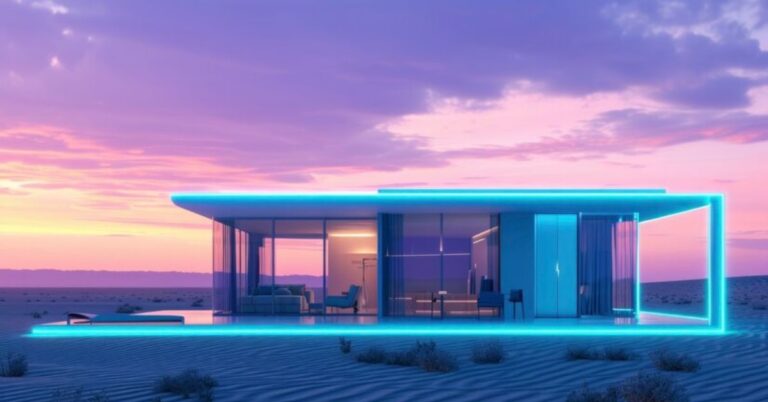Introduction to Modern Electrical Design
In today’s rapidly advancing world, the role of electrical systems in home design has never been more critical. Modern homes have evolved into complex hubs of technology and efficiency, requiring electrical systems that can support various functions seamlessly and safely. Homes are increasingly becoming intelligent environments, integrating technology that requires new and adapted electrical solutions.
Electrical designs must now incorporate innovations that maximize functionality while enhancing aesthetic appeal. From advanced lighting systems to intricate networks of smart home appliances, the modern electrical design landscape is about more than wiring and outlets—creating intuitive spaces that anticipate the occupants’ needs.
Innovative Electrical Designs: Safety and Efficiency
An essential focus for contemporary electrical design is enhancing safety alongside energy efficiency. This dual focus ensures that modern homes are secure and economical. Advanced circuit designs and materials promise better performance and fewer risks of common electrical faults like short circuits. Designers use copper wiring and PVC insulation to improve durability and reliability. This evolution necessitates expertise in performing services like electrical repair Van Buren AR to align these advanced systems with homeowner needs and regulatory standards.
Furthermore, innovation in electrical design integrates energy-efficient solutions such as LED lighting and energy-star-rated appliances. These components reduce energy usage, decrease carbon footprints, and offer significant savings on energy bills over time. Such designs are crucial for fostering responsible energy consumption habits among homeowners.
The Influence of Smart Homes on Electrical Systems
The surge in smart home technology has significantly reshaped expectations and requirements for residential electrical systems. Devices such as smart thermostats, intelligent lighting systems, and automated security measures necessitate infrastructures that support constant connectivity and integration. These advancements not only increase convenience for homeowners but also promote the efficient use of resources.
Intelligent technologies offer functionalities such as remote access to home systems and real-time energy usage monitoring, fostering an environment where resources are optimized. As recent research has outlined, the adoption of these technologies can significantly enhance the quality of life, making homes more adaptive to the occupants’ needs.
Incorporating Sustainable Energy
Sustainability is a foundational element of today’s residential design philosophy. Integrating renewable energy sources, such as solar panels and wind turbines, into home electrical systems is increasingly common. These solutions offer a method to cut down on monthly utility expenses and contribute positively to environmental conservation efforts.
Incorporating renewable energy systems involves careful planning and design, ensuring they function optimally within the existing infrastructure. Homeowners and designers are exploring synergistic combinations of sustainable technologies, including battery storage systems and energy management software, to make sustainable energy a staple in every residence.
Enhancing Power Management
Efficient power management is central to modern electrical system design. As homes become more technology-driven, optimizing power management solutions becomes increasingly necessary. This includes using smart meters and advanced electrical panels that allow detailed monitoring and management of energy flow throughout the home.
Such advancements ensure that energy usage is optimized and strategically distributed across various home systems. This holistic approach to energy management is increasingly endorsed by experts, as seen in energy management studies, underscoring the importance of these systems in reducing overall environmental impact and fostering economic benefits for homeowners.
Understanding Current Trends
Electrical designs must keep up with current industry trends to remain effective and relevant. The shift towards adopting more environmentally friendly solutions like LED lighting and high-efficiency appliances is indicative of broader movements within the home design sector.
Moreover, integrating IoT (Internet of Things) devices aims to create seamless communication networks within homes, allowing everything from lights to refrigerators to be interconnected for better energy use and convenience. According to a report, homeowners increasingly opt for appliances and systems that provide tangible savings and enhanced user experience.
Future Predictions in Electrical Design
Advancements in artificial intelligence (AI) and machine learning technologies dominate the future of residential electrical design. These innovations promise to redefine energy management by providing predictive analytics that allows homeowners to address issues and manage energy more efficiently and preemptively.
In addition, advancements in battery technology that can hold greater energy and distribute it more efficiently will enhance renewable energy sources. Such advancements align with global environmental goals and cater to a growing market of eco-conscious consumers seeking sustainable living solutions.
Conclusion: Moving Forward with Innovation
Residential electrical design is on the cusp of a thrilling transformation, moving towards a more sustainable and intelligent future. By embracing advances in safety, efficiency, smart home technology, and sustainable energy, homeowners can look forward to living spaces that meet contemporary demands and prepare them for future developments. The harmonious integration of these factors will ultimately lead to homes that are not just shelters but empowered environments promoting health, efficiency, and sustainability for future generations.

